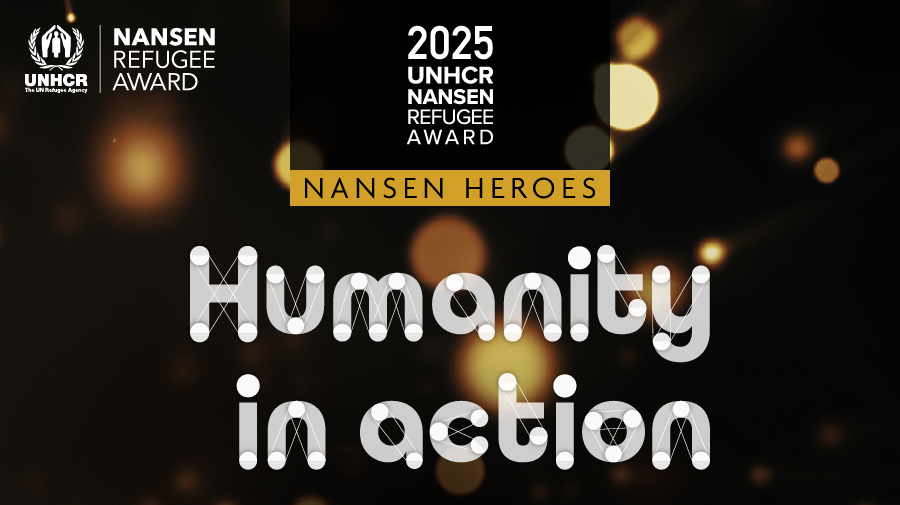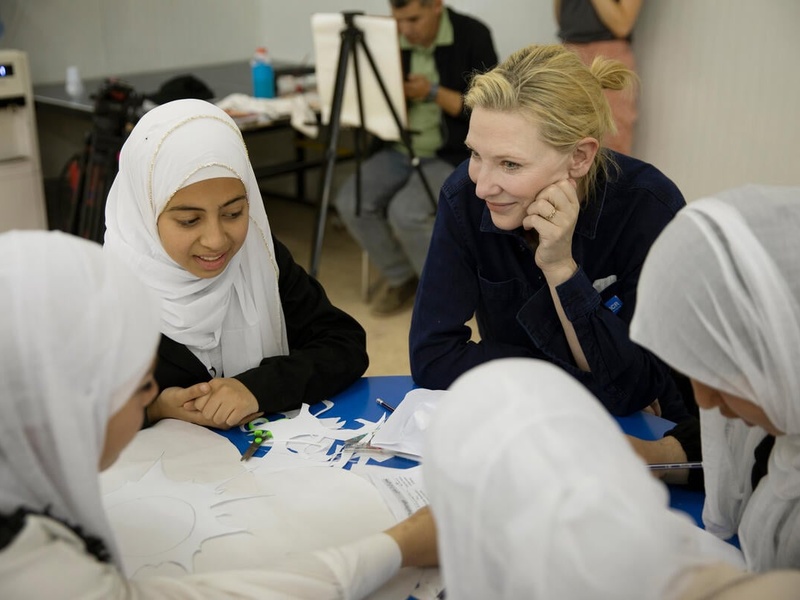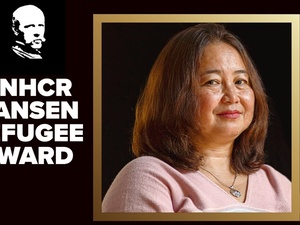The ceremony
The ceremony

The event will bring together state delegations, private-sector leaders, UN and international organization representatives, non-governmental organizations and refugee-led organizations to celebrate the exemplary work of the global laureate and the four regional winners.
The programme will showcase the winners’ achievements and feature live artistic performances. The ceremony will be recorded, and the video will be available online the following day. The physical event is by invitation only.
This year’s laureates remind us that, even in dark times, compassion remains undimmed. Their unwavering commitment to protecting and uplifting displaced people offers hope and inspiration. They embody the spirit of Nansen — a belief that every person forced to flee, wherever they are, deserves dignity, safety and hope.
Text and media 11
About the 2025 ceremony
The ceremony will feature an acceptance speech by the global laureate, Chief Martin Azia Sodea, as well as appearances by the regional winners and performances by award-winning artists.
Text and media 15
Cate Blanchett
Oscar-winning actor and producer Cate Blanchett has served as one of UNHCR’s most dedicated ambassadors since 2016, having met refugees in Niger, Bangladesh, Lebanon, Jordan, South Sudan, Australia, and Brazil.
Her support ranges from fundraising to high-level advocacy, ensuring that the human stories behind the statistics are heard.
Text and media 17
Leanne Manas
Leanne Manas was announced as a Goodwill Ambassador for UNHCR, the UN Refugee Agency, in January 2019. Since then, she has travelled with UNHCR to Kenya and Mozambique and used her voice to advocate for refugees.
Leanne is a highly respected media figure, having served as the anchor of the South African Broadcasting Services’ (SABC) flagship news show, Morning Live, for over twenty years. The show is broadcast live every weekday morning to millions of viewers across Africa and around the world. In addition to being an award-winning TV presenter, Leanne is also a radio host, MC and style icon.
Text and media 17
Ahmad Joudeh
Ahmad Joudeh is a Dutch ballet dancer and a choreographer who was born and grew up in the Yarmouk camp as a stateless refugee in Syria. He moved to the Netherlands with the help of the Dutch National Ballet Company in 2016. He has Dutch citizenship and is based in the United States.
A 2018 documentary about Ahmad’s life, ‘Dance or Die’, won an International Emmy Award, and in the same year, he performed at the Nansen Refugee Award.
Text and media 53
Tusse
Tousin “Tusse” Chiza is a musician and singer who was born in the Democratic Republic of the Congo. Tusse fled to neighbouring Uganda at the age of five, together with his aunt. After spending three years in a refugee camp in Uganda, he was resettled to Sweden.
In 2021, Tusse represented Sweden at the Grand Final of the Eurovision Song Contest with the powerful song “Voices”. Tusse openly shares his experience in overcoming challenges of settling in and adapting to new situations, helping empower young people facing similar difficulties. He has been an Ambassador for Sweden for UNHCR since 2021.
Text and media 17
Maria Sur
20-year-old Maria is a Ukrainian singer now living in Sweden. Born in Zaporizhzhia, Maria participated in the 2022 season of Holos Krainy, the Ukrainian version of The Voice, though her career in Ukraine was cut short following the full-scale Russian invasion, after which she fled to Sweden with her mother.
She has since performed in song contests in Sweden and supported Sweden for UNHCR’s World Refugee Day gala event in Stockholm last year.
Since 1954, more than 60 individuals, groups or organizations have received the Award for their extraordinary service to refugees, displaced and stateless people.













